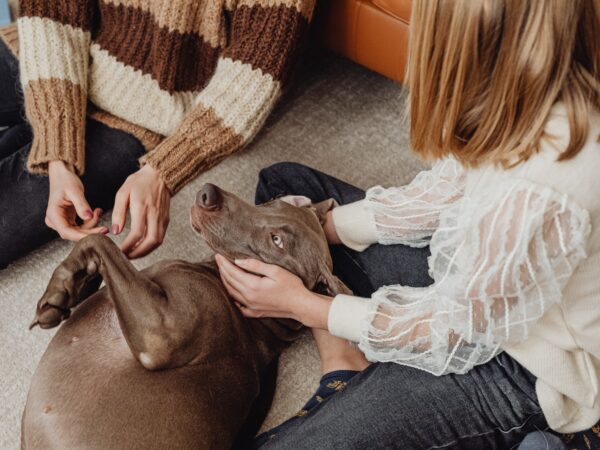Pets have been an essential part of the lives of humans since ancient times. Domesticated animals have long been instrumental in building human civilizations, serving as guards and companions. However, the concept of pet ownership has evolved over the years, leading to debates on whether we should continue to keep animals as pets or not. Despite the continuous argument about the ethics of owning pets, pet ownership has continued to rise. In this article, we’ll explore the good, the bad, and the furry: the truth about pets. We’ll look at the benefits of pet ownership, the detrimental effects of pet ownership, and the responsibilities of pet ownership.
The Good
According to scientific research, owning a pet has several benefits, both physical and psychological. Here are some of the good truth about that comes with pets ownership.
1. Mental Health Benefits
Pets have therapeutic effects on humans, and studies have shown that they can improve mental health. By providing companionship, pets can help alleviate anxiety, depression, and isolation. Pets are also used in therapy to help individuals cope with mental illnesses and emotional disturbances.
2. Physical Health Benefits
Pets can improve our physical health too. For instance, when we walk our dogs, we tend to exercise more, which promotes cardiovascular health. Petting and playing with our pets also helps increase our levels of oxytocin, a hormone that reduces stress and lowers blood pressure.
3. Children’s Development
Owning a pet can have a positive impact on the development of children. Children who grow up with pets develop empathy, responsibility, and social skills. Pet ownership teaches children how to care for others, promoting a sense of responsibility and compassion.
4. Improvement in Social Life
Pets have a way of bringing people together. They’re excellent conversation starters, and they make excellent icebreakers. Dog owners, for example, tend to talk to each other frequently while walking their dogs, which helps to build a sense of community.
The Bad
As there are benefits to owning pets, there are also some drawbacks. Here are a few of the bad truth about owning pets.
1. Financial Responsibility
Owning a pet can be expensive. There are costs associated with feeding, vet visits, grooming, and training. Pet owners must factor in these expenses before acquiring a pet to ensure they can adequately provide for the pet.
2. Time Commitment
Owning a pet requires a time commitment. Depending on the type of pet, owners may need to dedicate several hours each day to care for and exercise their pets. For example, dogs need daily walks and playtime to stimulate them physically and mentally.
3. Hygiene
Pets can affect the hygiene of the home. Animals shed fur and dander, which can cause allergies and trigger asthma attacks. Owners must clean their homes frequently to keep the environment tidy and free from pet hair.
4. Behavioral Issues
Pets can cause behavior issues. Undisciplined animals can destroy property, disrupt the peace in the home, and be a nuisance to neighbors. Owners need to spend time training and disciplining their pets to reduce the risk of behavioral issues.
The Furry
Pets come in various shapes and sizes, from the fluffy to the slimy. Here are a few examples of different types of pets and the costs and benefits associated with them.
1. Dogs
Dogs are the most popular pet in the world. They’re social animals that require attention and care. Dog owners must be willing to dedicate time, resources, and space to their furry friends. The cost of owning a dog varies depending on the breed, size, and age. Expenses include food, vet visits, and grooming needs.
2. Cats
Cats are independent animals that require less attention than dogs. They tend to sleep for most of the day, which is perfect for busy owners. The cost of owning a cat is lower than owning a dog, but owners still need to spend money on food, litter, and vet bills.
3. Rabbits
Rabbits make excellent pets for children as they’re easy to care for, unlike dogs and cats. They require less maintenance, and their food costs less than that of dogs and cats. The cost of owning a rabbit is also lower than that of owning a cat or a dog, but they still require daily maintenance and checkups.
4. Hamsters
Hamsters are pocket pets that are easy to care for and thrive in small spaces. They require minimal attention and food, making them an excellent option for first-time pet owners. The cost of owning a hamster is low, but owners still need to provide food, bedding, and exercise equipment.
Responsibilities of Pet Ownership
Owning a pet comes with a set of responsibilities that owners must be ready to undertake. Here is a list of pet ownership responsibilities.
1. Regular Feeding
All pets need to eat regularly. Pet owners must be ready to provide food and water for their pets as per their dietary requirements.
2. Daily Exercise and Playtime
Some pets require daily exercise and playtime to stimulate them physically and mentally. Pet owners must be ready to provide their pets with opportunities to play and exercise.
3. Regular Vet Visits
All pets need to visit the vet regularly to ensure they’re in good health. Pet owners must be ready to take their pets for regular checkups and emergency visits when necessary.
4. Hygiene
Pet owners must keep their homes clean and tidy to keep their pets healthy. Regular grooming and cleaning are necessary to maintain pets’ hygiene and overall health.
5. Training and Socialization
Pet owners must spend time training their pets and socializing them with other animals and humans. Pets that are well-behaved reduce the risk of behavioral issues.
Conclusion
Pets are an integral part of our lives. They are a source of love, companionship, and comfort. Owning a pet has several benefits, from improving mental and physical health to helping children develop empathy and responsibility.
However, pet ownership also comes with its set of responsibilities and drawbacks, and owners must be ready to undertake them before bringing a pet home. In conclusion, the good, the bad, and the furry truth about pets make it essential to weigh the pros and cons of pet ownership before deciding to bring a pet home.











